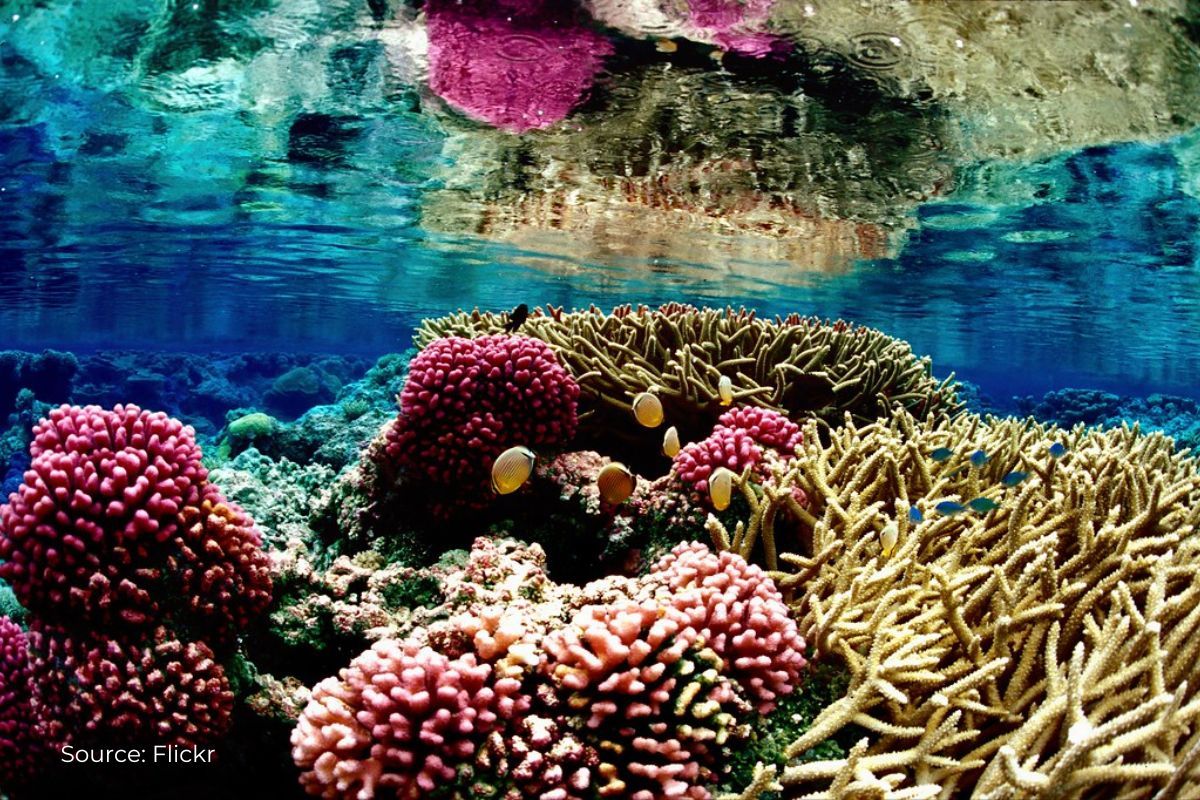In March, the US-based National Oceanic and Atmospheric Administration’s (NOAA) Coral Reef Watch, issued a red alert for the Gulf of Mannar in Tamil Nadu. They stated that “above normal” sea surface temperature is likely to trigger mass bleaching and coral mortality in the region.
The Gulf of Mannar on the southeast coast of India is a major reef region with a significant spatial extent of corals. Home to over 132 species of corals, it is also one of the richest biodiversity hotspots in the world. However, climate change and anthropogenic stress over the years have resulted in a significant part of the live coral cover. This raises extra concern, as the scientists from NOAA have just stated that the fourth global bleaching event in the last three decades has occurred. Thoothukudi-based Suganthi Devadason Marine Research Institute, which closely monitors coral reefs in the Gulf of Mannar, confirmed that the NOAA has issued a ‘level 2’ coral bleaching alert for the Gulf of Mannar. This means that there is a 60% probability of reef-wide bleaching and the mortality of heat-sensitive corals.
The global bleaching event is turning the colourful coral reefs along coastlines from Australia to Kenya to Mexico white. The water temperature anomalies caused by global warming, cause the corals to expel the colourful algae living in their tissues, resulting in them turning completely white. Furthermore, without the colourful algae, the corals become vulnerable to starvation and disease. Corals are also home to over 25% of all marine species.
Warming of the ocean water due to climate change meant that at least 54 countries and territories have been experiencing mass bleaching among their reefs since February 2023. NOAA experts believe the current global bleaching event could be the most extensive yet.
“From February 2023 to April 2024, significant coral bleaching has been documented in both the northern and southern hemispheres of each major ocean basin,” said Derek Manzello, coordinator of Coral Reef Watch.
Global bleaching events and shrinking corals
For the bleaching event to be deemed global, significant bleaching must occur within 365 days in all three ocean basins: the Atlantic, Pacific, and Indian. The last global bleaching event occurred in 2016, and then the NOAA issued three new alert levels as the ocean temperature increased significantly.
More than half of the world’s coral, including Australia’s Great Barrier Reef is affected. Tropical reefs in Indian oceans have also begun to suffer. The third mass global bleaching event caused significant mortality of the corals in the Gulf of Mannar in 2016, and the coral cover was reduced to 22.7%. But subsequently, it increased to 27.3% in 2021. Despite the recovery, scientists state the pace remains slow, with the reef area shrinking from 11,060 hectares to 6,628 hectares since 2005.
All four mass bleaching events coincided with El Niño climate patterns, which typically bring warmer sea temperatures. Climate change has compounded the effects of El Niño, intensifying the warming of sea temperatures.
The global weather models also indicate that 2024 is likely to be the warmest year. In addition, oceanologists are almost certain that sea surface temperature will breach the threshold of 30 degrees Celsius and may even reach 33 degrees or above this year. If this condition prevails, the heat stressor will be the death knell for most of the coral species, including those in the Gulf of Mannar.
Keep reading
Pillar corals population declined 80% due to human interference
Impacts of climate change on Coral Reefs, why are they important?
Study highlights urgent need to safeguard deep reefs
What factors put Australia on the red line of Climate Extremes?
Over 500 Reef species in Australia decline in last decade
Follow Ground Report for Environmental News from India. Connect with us on Facebook, Twitter, Koo App, Instagram, Whatsapp and YouTube. Write us on GReport2018@gmail.com and subscribe our free newsletter.
Don’t forget to check out our climate glossary, it helps in learning difficult environmental terms in simple language.










